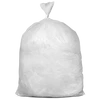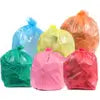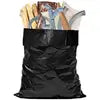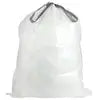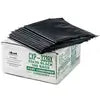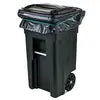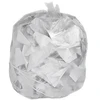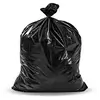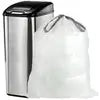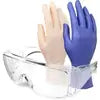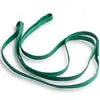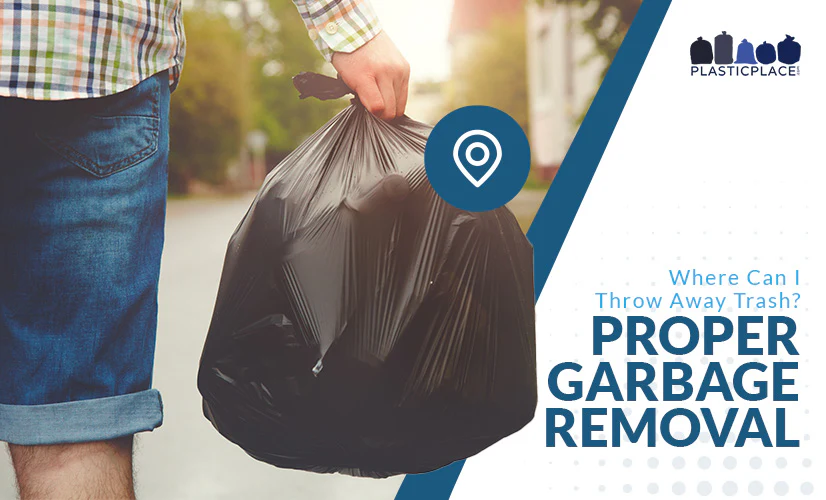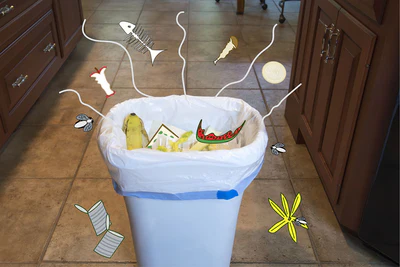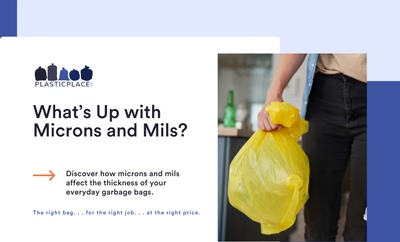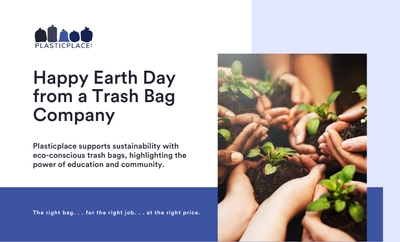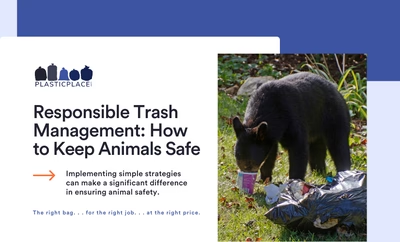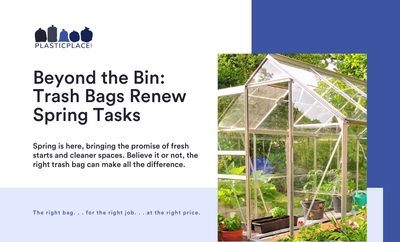We all produce some trash — it’s just a fact of life. And while reducing the amount of trash that you create is great, finding the right place to throw away the trash you do create is equally important. Whether it’s kitchen scraps, yard waste or construction debris, we can all minimize the impact of the trash we create by ensuring it ends up in the ideal final destination.
“OK,” you’re saying, “I already know that my trash goes in the trash can. We all are highly familiar with the first vestibule for trash - it is our office or kitchen or bathroom trash can. Most of us do not think beyond what happens past our curbside but there may be a better location that the curb, especially when dealing with large, bulk items. For example tires, and large pieces of furniture should be disposed of differently.
As trash bag experts with a fascination regarding all things garbage, we find the journey of trash fascinating. In this guide, we are happy to share what we have learned over the years about proper trash disposal.
Four Places You Can Throw Away Trash
For the everyday trash and recycling that a home or small business generates, these are the standard choices for disposal. No matter which choice you, your home or business select, make sure to utilize drawstring trash bags that are easy to lift, tie and carry!1. Curbside Pickup
If you live in a city or large town, your local government probably provides curbside garbage pickup. Some cities and towns contract with private waste disposal companies for pickup, while others do it through municipal agencies. You pay for service either through a monthly utility bill or through taxes.
Typically, curbside pickup requires you to place your bagged trash in rollaway carts. On trash pickup day, a garbage truck will drive through your neighborhood and empty your trash bins. In many cities, the curbside garbage service also picks up recycling, although it might happen on a different schedule.
Every curbside pickup program has its own rules for where to leave your rollaway carts. The curb or end of the driveway is the most common spot, but it could also be the alley if your city has them. If you don’t have rollaway carts, contact your town’s sanitation department.
Make sure that your trash cans are facing the right way with the lids closed, or your garbage collectors might not pick them up. Also, check that your cans aren’t blocked by obstacles or otherwise inaccessible.
2. Roll-Away Dumpster
Businesses and larger apartment buildings typically rent roll-away dumpsters from waste disposal companies or local governments. These dumpsters come in various shapes and sizes, so you can choose one that’s right for you. Check what you’re allowed to put in the dumpster, as some disposal companies charge extra to dispose of large items like furniture.
The waste disposal companies that rent out dumpsters also service them regularly, and some will even give you options on when you’d like to schedule your pickup. Before you order one, decide where you’ll put the dumpster and make sure you’ve got a space for the garbage truck to access it.
3. Going to the Dump
People in rural areas will usually need to transport their trash and recycling to a solid waste center — aka “the dump”. Most rural community areas have a waste center with public dumpsters available for both trash and recycling. The trash goes to a landfill or incinerator, while the recycling heads to a recycling center.
These waste centers typically charge a fee when you drop off trash and recycling. It’s common for a waste center to charge by the pound of trash thrown away, possibly with an extra fee for certain kinds of trash like yard waste or construction debris. Other dumps charge per trip, or per unit in the case of trash like used tires.
4. Composting
If you have a lot of kitchen scraps and/or yard waste, you might be able to start a compost! Composting is one of the most eco-friendly ways to dispose of trash since it breaks down all of the nutrients left in the waste and recycles them. When it’s done decomposing, you’re left with a rich fertilizer that’s ideal for gardening.
Starting a compost for your home can be surprisingly easy. Remember, though, that you can’t throw just anything in your compost. Meat, dairy, animal waste and yard waste treated with pesticides are all a no-go for composting.
Where Can I Throw Away Trash Near Me?
What if you don’t know where the best place to throw away your trash is? The easiest way to find out is usually through your local government. Your city, town or county probably has a Department of Sanitation or an equivalent, so their website should be your first stop.
Through your local sanitation department, you can learn what services are available in your area. Find out if curbside pickup is available to you, and check out the location of the local solid waste center if not. Most local government sites will also have information on getting a dumpster for your business or rental property.
Waste disposal companies like Waste Management also offer tools to find a waste dropoff point near you. Just enter your zip code and you’ll find a list of options in your area. Be sure to check which types of waste the dropoff accepts and how much it charges for its services.
Where Can I Dump Garbage for Free?
So, is there any place to dump garbage for free? Unfortunately, probably not. Almost all solid waste centers charge a fee to use their services.
However, as a general reference, the average cost of municipal solid waste disposal in the U.S. was $53.72 per ton in 2020. Unless you’re throwing away contractor bags full of construction and demolition garbage, or you have a large business, the costs should be manageable.Order Specific Recycling Bags When Required
Speciality / Oversized Trash
Not all of our trash fits neatly in garbage bags. Outlined below are some common items and how to properly dispose of them: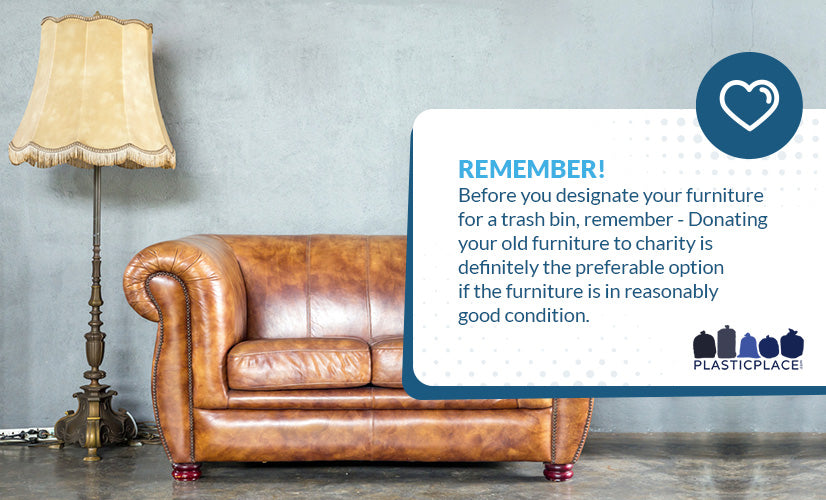
1. Furniture
Before you designate your furniture for a trash bin, remember - Donating your old furniture to charity is definitely the preferable option if the furniture is in reasonably good condition. Obviously, though, not all furniture is something you’d want to donate — we’re looking at you, squeaky box spring and old couch with the mysterious smell!
If your furniture is not recyclable or redeemable, cities and towns typically offer an option to have bulky items like furniture picked up from your home. Often, this requires scheduling a bulky item pickup in advance, and you might have to pay an extra fee to the garbage collection agency. In a rural area, you’ll probably need to transport your furniture to the dump yourself, or contact a junk hauling service.
2. Electronics
Electronics like phones and laptops have components that can leach toxic compounds into the soil. These devices shouldn’t go into a landfill, so they shouldn’t go into your trash, either! First, find out whether the company that made the device offers a recycling program. Apple, Sony and other big hardware manufacturers recycle their own products to keep them out of landfills.
If the manufacturer doesn't offer a recycling program, you have a few options. Women’s shelters and other community organizations sometimes accept donations of used electronics. Otherwise, find an electronics recycling center near you. These drop-off locations will send your junk electronics to facilities that can safely dispose of them. 
3. Yard Waste
If you opt not to compost yard waste like leaves, grass trimmings and tree branches, most waste management services will pick it up for you. However, a lot of waste collectors charge extra for yard waste or have a separate pickup day for it. Make sure you’ve got your yard waste in durable plastic lawn bags since sharp sticks can puncture thinner bags.4. Construction Waste
Small amounts of construction debris like wood and drywall are OK to throw away in normal household trash, so long as you’ve got a durable contractor bag to hold it. The problem is that many construction projects make a lot of this debris, which is why construction companies typically rent construction dumpsters for their job sites. These reinforced open-top dumpsters are designed to hold tons of heavy trash, and the companies that rent them out typically also provide pickup services. You can procure a dumpster from a private company, or many municipalities will have them available to rent.5. Tires
Many municipal landfills don’t accept tires because they take up a lot of space and can cause potentially harmful gas build-ups. Instead, the best idea is to recycle your tires through a qualified tire recycling service. You might be able to get this service from a tire dealership, an independent tire recycler, a mechanic shop or your local government.6. Hazardous Materials
This category includes many industrial chemicals and biohazard waste from medical facilities. These items need to be disposed of on a case-by-case basis using the procedures in their Safety Data Sheets. In most cases, though, the safest place for them is a designated hazmat disposal point.Separating Garbage and Recycling
No matter where and how you’re disposing of trash, it’s always important to keep your garbage and recycling separate and sorted. Putting non-recyclable items in with the recyclables can “contaminate” the bin and make the whole batch unusable.
Every local recycling program has its own guidelines for what they can and can’t recycle. Typical recyclable materials include glass bottles, aluminum cans, cardboard, paper and thick plastic like milk jugs. Non-recyclables include plastic bags, food waste, batteries, anything with food residue, ceramics and aerosol cans. Not all municipalities will allow the use of recycling bags, as they do not have the machines that sort recyclables. This will require you to carry your recyclables from the kitchen bin to the recycling bin. However, many municipalities allow for recycling bags to help keep your trash easy to move, and to keep tidy. Party hosts, organizations and event planners often find it is also handy to keep recycling bags at events for collection with large groups to then be brought to bins or be disposed of as is. After a long event or party, the last thing anyone wants to do is be sorting recycling! 
What Not to Do with Trash
It’s worth mentioning that there are a few ways you definitely shouldn’t get rid of trash.You may be surprised to know certain forms of trash removal are not just bad for the environment - they are actually illegal! All of the following are illegal in most places:
- Don’t burn it. Burning trash is a serious hazard to the environment that leaves toxic chemicals in the air, soil and groundwater. It’s also a major fire hazard that can put your neighborhood at risk, even if you’re using a burn barrel or fire pit.
- Don’t throw it in someone else’s bin. Throwing your trash into a bin on someone else’s property (including the dumpsters behind businesses) takes up space that they probably need for their own trash and is considered illegal.
- Don’t bury it. Making your own landfill can harm local groundwater supplies and create sinkholes, which is why burying trash is illegal in many places. You’ll also have to disclose it if you sell the property, which will hurt your property value and turn off buyers.
- Don’t dump it illegally. We all know not to litter — right? Illegal dumping contaminates soil and drinking water, not to mention being a hideous eyesore.
Drawstring Trash Bags Make It Easy to Remove from the CanOnce you’ve found the right place to throw away your trash, Plasticplace has the selection of garbage bags to help you do it. Our lineup includes every size, style and material you need to make sure your garbage gets where it’s going!
Shop all of our garbage bags now to get started, and see our guides like What is a trash compactor? and How to hide trash cans for more great tips on making your trash more manageable.
Image Sources
Ellyy/Shutterstock.com
MOHAMED ABDULRAHEEM/Shutterstock.com
vichie81/Shutterstock.com
Daisy Daisy/Shutterstock.com
Maria Sbytova/Shutterstock.com
 4.9 out of 5
4.9 out of 5 












